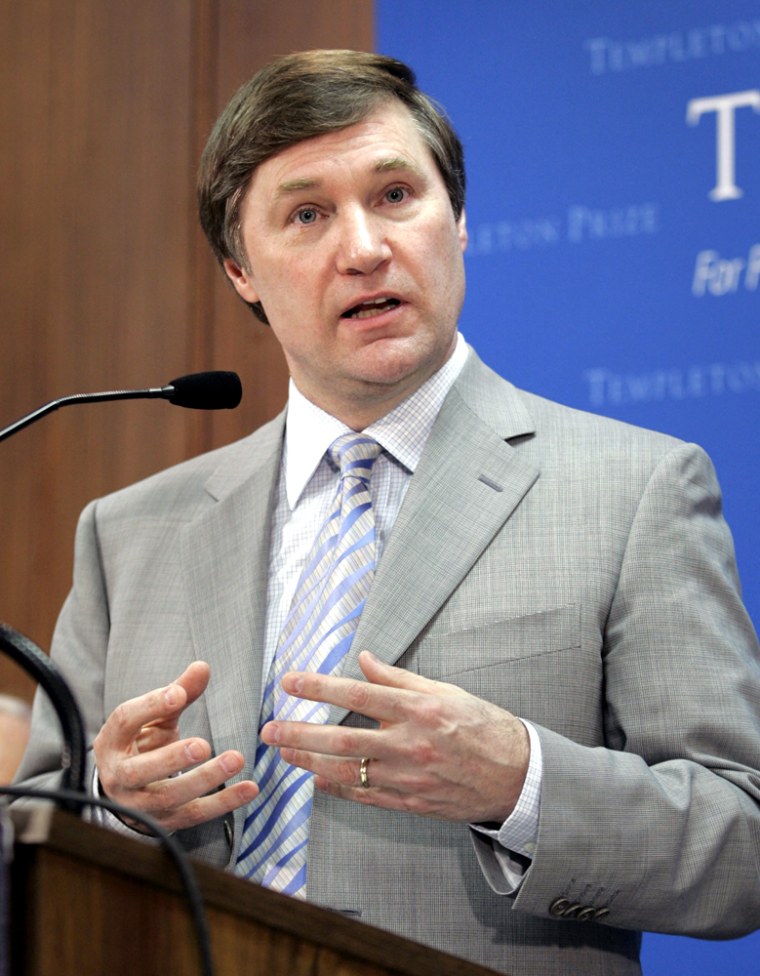John D. Barrow, a British scientist and writer whose work explores fundamental questions about the universe and humanity’s place in it, has won a religion award billed as the world’s richest annual prize.
In the past, the $1.4 million Templeton Prize has honored Mother Teresa, Billy Graham, and Soviet dissident Alexander Solzhenitsyn. It recognizes advancement in knowledge of spiritual matters.
Barrow, 53, is known for his popular books and essays on cosmology, the study of the structure and history of the universe. His writing touches on topics such as the spiritual implications of the big bang, the nature of infinity and the limits of science in addressing some of humanity’s most enduring unknowns.
“People look to science to give them complete certainty, complete assurance, in the same way they look to religion,” Barrow said.
But in reality, he said, neither science nor religion can offer the kind of ultimate truths that humanity craves. “Religion is all about how we react to this uncertainty,” he said. The award was to be announced Wednesday at a news conference at the United Nations.
Barrow is the author of more than 15 books, including “Pi in the Sky,” a consideration of the nature of mathematics and its relationship to the physical world. In 2002, he collaborated with Italian director Luca Ronconi on an experimental play that dramatized the concept of infinity in five parts.
In his current research, Barrow is trying to demonstrate fluctuations in the value of the fine structure constant, a fundamental number related to the strength of the electromagnetic force, over the universe’s history. Changes in the so-called “constant” would suggest the existence of additional dimensions besides the four familiar ones of space and time.
A native of London, Barrow is currently a professor of mathematics at Cambridge University.
In giving the award to Barrow, the Templeton Foundation praised the professor for having “given theologians and philosophers inescapable questions to consider when examining the very essence of belief, the nature of the universe and humanity’s place in it.”
The Templeton prize is named for investor and mutual fund pioneer Sir John Templeton. It is administered by the Templeton Foundation, based in West Conshohocken, Pa.
The award will be presented May 3 by Prince Philip in a private ceremony at Buckingham Palace.
